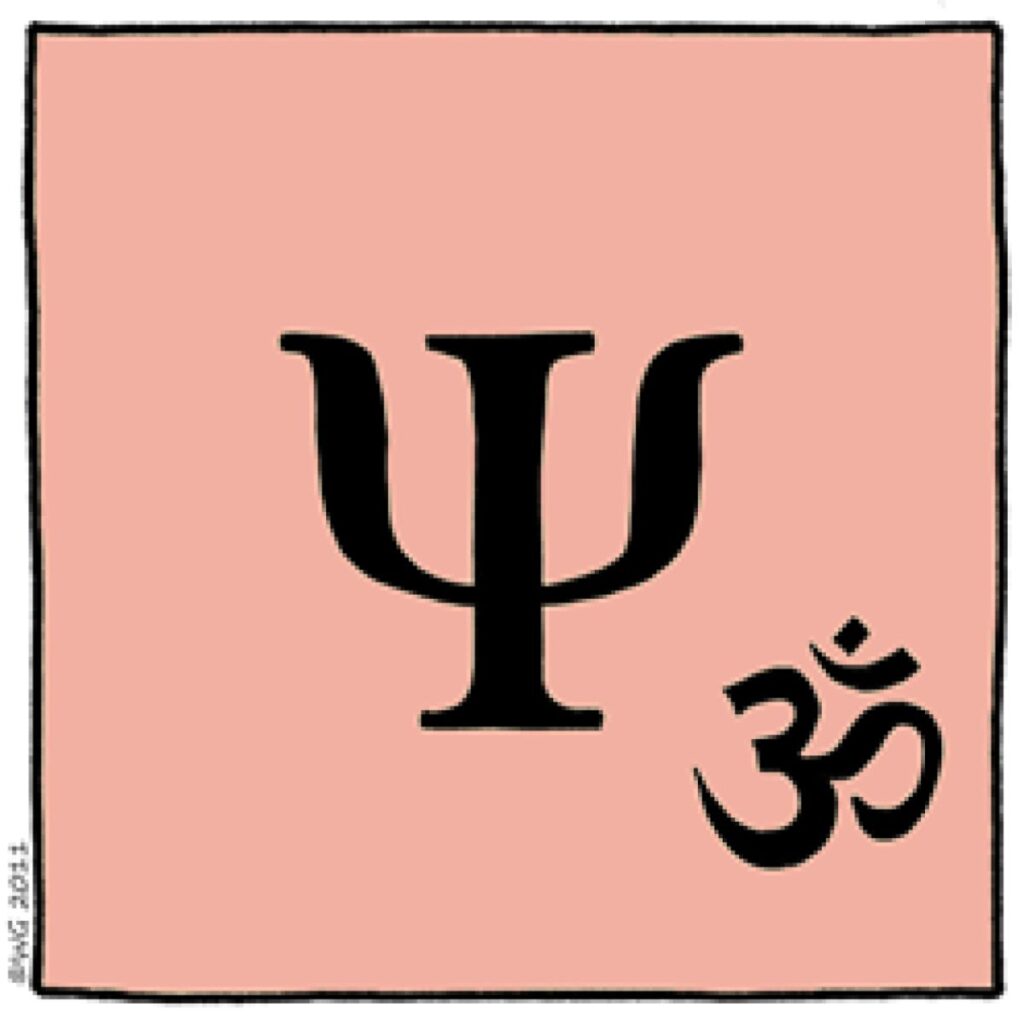“Trans-personalism” is a term used in western philosophy and psychology to denote any dimension of experience that “transcends” or exceeds the “personal” or individuated-first-person perspective. Such dimensions of human experience have remained an anomoly in these fields, which have traditionally regarded the individual, ego-centered dimensions of personal identity (our self-identity as private and separate from the rest of the world) as “normal”. This has been the case especially since the advent of modernity in western history, when perspectives more amenable to transpersonal identity in Platonic philosophy and Christian thought were supplanted by an ego-centered conception of personhood via thinkers like Rene Descartes, Thomas Hobbes and John Locke.
This conception became predominant as cultural developments like the Scientific Revolution, Industrial Revolution, and Liberal Democracy placed individual identity, personal responsibility, and individual rights at the center of Western psychology, institutions and ideas. By the 19th century, philosophy and psychology/psychiatry tended to interpret personal experience exclusively in terms atomized, isolated self–interacting with other isolated selves in the ‘outside’ world that the ‘inner’ self experiences only second-hand. This concept of self-identity has shaped the development of western intellectual and popular culture and underwrites everything from our society’s recognition of individual constitutional rights to its valorization of self-expression, self-determination, and self-respect. Only in non-mainstream philosophical-psychological and literary movements like Idealism, vitalism, and romanticism in the 19th century, or existentialism, Jungian psychology, and post-modernism in the 20th century, did a connection to traditional transpersonal understandings of personhood retain some importance in the West.
Interestingly however, most non-western psychologies and philosophies of mind, as well as the cultural milieu in which they emerged, don’t share the historical and intellectual legacy of ego-psychology and individualism that has shaped that of the West. In south Asia, for instance, Advaita Vedanta metaphysics since ancient times has posited a transpersonal concept of self-identity–one which represents a salient counter-point to ‘atomistic’ individuated Western ego-centered conceptions of personal subjectivity. Systematized largely in the philosophies of Gaudapada and Sankara during the 7th-8th centuries CE, in a tradition with roots stretching back at least hundreds of years prior, Advaita Vedanta synthesized many strands of Hindu philosophy into a comprehensive ‘metaphysics of Being’ that places the kind of self-identity conceived in the West within an infinite cosmic conscious matrix that encompasses the individuated self without eradicating it. Vedanta philosophy conceives all reality—including individual selves—as manifestations of this infinite cosmic consciousness, or Brahman, which, though beyond forms in itself, takes on tentative forms in individual minds. The individual self or ego therefore exists simultaneously as both the finite form (“Jiva”) taken by the infinite mind, and the formless infinite mind (“Atman” which is also Brahman) itself.
There is an important sense, of course, in which the Advaita Vedanta conception of self-identity mirrors that of the West. Advaita Vedanta does acknowledge the existence and legitimacy of an individuated self—after all, if Brahman is ultimately and absolutely real, and there is nothing that is not Brahman, and the experience of individual self-identity exists, then the experience of self-identity must, in some sense, be real as well. Sankara even provides an argument akin to Descartes famous “cogito ergo sum” to validate it: Descartes writes, “Immediately I noticed that while I was endeavoring to think…that everything was false, it was necessary that I who was thinking this was something….I am thinking, therefore I exist…”. The very fact that the self (“I”) can question its own existence, means that it must exist. Moreover it must also be the source of all thinking. And similarly Sankara claims, “No one can doubt the Self, because he who is doubting the Self must be a Self”. Again, in order to doubt itself, the personal, individual self must exist. And more recently Swami Vidhyaranya argues, “No one can doubt the fact of his own existence. Were one to do so, who could the doubter be?”
However, the essential difference between Cartesian and Vedanta accounts is that the Self (Atman) to which this argument refers in Advaita is of a much different character than the individuated bounded and localized Cartesian ego-self. The ultimate or true Self (Atman) in Advaita Vedanta transcends and encompasses the individual ego-self (jiva), which may be conceived as a dim reflection (for instance in the Vivarana school of Advaita Vedanta, which depicts the Jiva-self as a mirrored image) or as a limited misperception (for instance, in the Bhamati school, which depicts it as a truncated replication) of the Atman-Brahman Self from which, and through which, it emanates. True Self-identity or Atman is a transpersonal one that precedes and encompasses its own attenuated incarnation as a personal Cartesian-type ego (jiva).
Radhakrishnan adds that, “The ego belongs to the relative world…a center around which our experiences of sense and mind gather. At the back of this whole structure is universal consciousness, Atman, which is our true being”. And since the ego (jiva) is capable of effecting its own self transcendence in realizing larger connections to potentials and states of existence above and beyond its own apparent limitations (through expanding knowledge, deep meditation and profound insights, for instance), this is obvious evidence that there is much more to self-identity than the limits of an individual ego can encompass. “The self-transcending capacity of the jiva is the proof that it is not the limited entity it takes itself to be”, Radhakrishnan insisted. Thus, while the Western self is defined by its ego-centric limitations, the Advaita Vedanta Self is defined by its capacity to be decentered from the confines of an ego and recentered everywhere.
This intellectual contrast has had significant ramifications in their larger respective cultural spheres. South Asian civilization has produced a dharmic spiritual tradition fostering highly diverse and advanced modes of introspective exploration and self-transcendence. It’s literature, from the Upanishads, Yoga Sutras, and grand Epics like the Mahabharata/Ramayana, to the Modern poetry of Tagore and neo-Vedanta philosophy, is replete with exhortations to seek ego-transcendence by looking inward to the deeper Brahminic Self. Its systematic contemplative methodologies from Buddhist meditation to Hindu Yoga have provided practical paths to self-transcendence, and empirical-phenomenological data on the nature of such transcendence, for millennia. This transpersonal perspective has also had less positive ramifications: deemphasizing the idea of a substantial ego-identity has led in part to a relative devaluation of individual rights and responsibilities (compared to individualistic social justice social-political theories in the West), which has historically undermined, to a certain extent, south Asian civilization’s prospects for the kind of social justice legacy fostered by a strong sense of ego-identity in the West.
In contrast, Western civilization has enjoyed a vibrant intellectual-social legacy of civil and human rights enshrined in constitutional-criminal-civil law which is based, in turn, on its respect for individual identity. It has also developed a brilliant and long-standing psychological literature celebrating the value self-expression and “self-actualization” (as Maslow’s humanistic psychology exemplifies). Along these same lines however, Western society since the dawn of modernity has faced a growing surge of mental health problems (from depression to anxiety to anti-social disorders) caused in large measure by just the very kind of ego-psychology that it also promotes—the psychological pathologies typically found in western societies being related to personal isolation, narcissism, social alienation, etc. (all a consequence of an over-emphasis on individualism and ego-centrism).
Recent trends in “perennial philosophy and psychology” have called for a holistic East-West rapprochement in which their divergent perspectives on themes like self-transcendence are reconciled within a larger world view capable of encompassing both. Such a rapprochement may be what is needed to preserve the significant insights that both civilizations have conceived and, in doing so, creating a conception of the person that encompasses both the local and the transcendent realities that make us human.




Hi Dr. Grego, I just read your brilliant article- a nice articulation of self-Self as conceived and articulated in the East and the West. As I have seen and lived and studied both the worlds, I can fully fathom the core of your argument. I would say combining them all, they provide an integral picture. At one time I was a fan Descartes, and still am to some extent, and his cogito ergo sum, and how the modern rationalist and developed world is based on such a thinking. You are right that it has its limitations and also on this are based modern ideas of rights and liberties. I would argue the founding fathers particularly Madison were cognizant of this limitation, hence he wrote, “if men were angels….” This limited, egoistic individual, was also recognized by Vedanta scholars. Shankara would call this egoistic individual empirical truth or vyavaharik satya and atman-brahman ultimate truth or parmarthik satya, but you are right the egoistic individual was not given needed importance. Sri Aurobindo was critical of this and wrote at one place, “ego was the helper, now it is the bar.” Egoistic individual has the potential within to transcend ego. Enjoyed reading the article. Thanks for the great contribution!